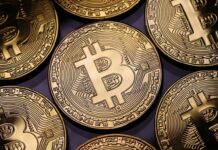
The National Bureau of Economic Research (NBER) released a working paper last week which revealed that 70% of transactions on unregulated exchanges are a result of wash trading. The report focuses on the four most heavily traded cryptocurrencies, including BTC, ETH, LTC, and XRP.
The Average Wash Trading Volume on Unregulated Exchanges Stands at 77.5%
A new research paper by the National Bureau of Economic Research (NBER) found that 70% of transactions on unregulated exchanges are a result of wash trading. The NBER utilized statistical and behavioral patterns to identify fake transactions and found that nearly three out of four transactions on 29 unregulated bourses were not legitimate.
Further, the paper, titled “Crypto Wash Trading,” also revealed that the wash trading volume on these exchanges is averaging as much as 77.5% of their total trading volume. More specifically, the number of wash trade transactions on the twelve Tier-2 crypto exchanges is estimated to be above 80% of their total trading volume, which is “still over 70% after accounting for observable exchange heterogeneity,” according to the document.
Unregulated Exchanges Facing Increased Regulatory Scrutiny in the Wake of FTX Crash
The paper focuses on the activity of the four most traded cryptocurrencies against US dollars, including Bitcoin (BTC), Ether (ETH), Litecoin (LTC), and Ripple (XRP). The document also further categorizes unregulated exchanges for easier reference using web traffic ranking data. The NBER used Tier-1 rank for exchanges ranked in the top 700 in the finance section of SimilarWeb.com, while Tier-2 was used for the remaining unregulated exchanges, all ranked outside the top 960.
The document found that wash trades represent more than 53.4% and 81.7% of all transactions on Tier-1 and Tier-2 exchanges, respectively. The NBER claims the numbers are still informative even though the research focuses only on the four major cryptocurrencies.
The NBER States it was consistently spotting anomalous trading patterns on unregulated exchanges, as opposed to regulated exchanges where such patterns are absent. The document says over 20% of Tier-1 unregulated exchanges failed the tests, while Tier-2 bourses failed as much as 60% of the tests.
Unregulated exchanges have been facing intense scrutiny by the crypto community and global regulators following the FTX’s collapse last month, which has had one of the worst contagion effects in the industry. New reports revealed that wallets linked to FTX’s sister firm Alameda Research funneled around $1.7 million in assets through crypto mixers, just a few days after Sam Bankman-Fried was released on a $250 million bail.
This article originally appeared on The Tokenist
Sponsored: Find a Qualified Financial Advisor
Finding a qualified financial advisor doesn’t have to be hard. SmartAsset’s free tool matches you with up to 3 fiduciary financial advisors in your area in 5 minutes. Each advisor has been vetted by SmartAsset and is held to a fiduciary standard to act in your best interests. If you’re ready to be matched with local advisors that can help you achieve your financial goals, get started now.






